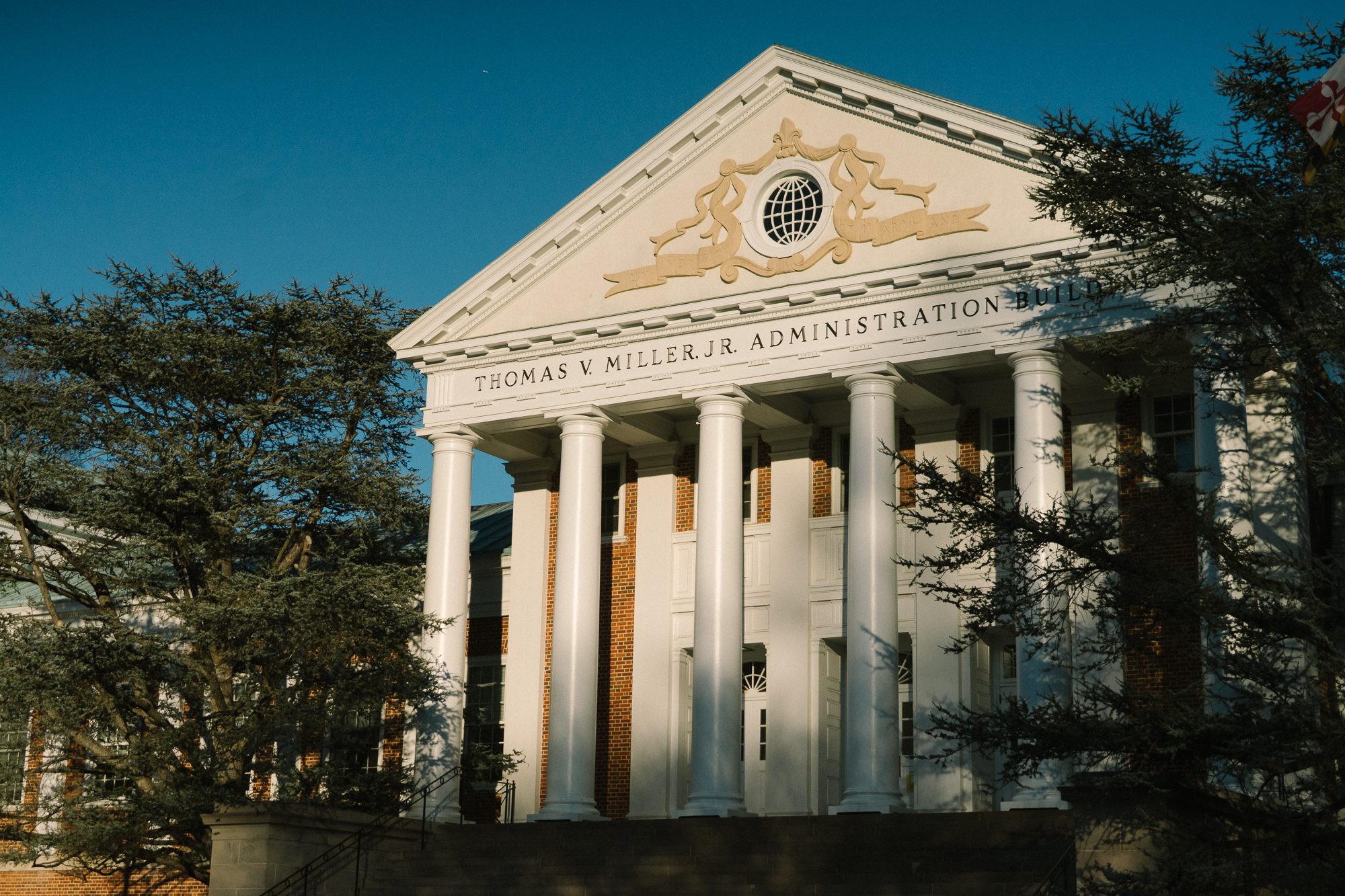The University of Maryland’s Senate on Tuesday discussed free speech on campus and the university’s interim chalking policy.
The senate will develop a new permanent chalking policy, according to senate chair Christopher Jarzynski. The conversations come amid a surge in violence in Israel and Palestine in the last two months, during which student groups have chalked messages on campus during protests.
In a Nov. 27 email, university president Darryll Pines announced an interim policy that restricts chalking on campus to Hornbake Plaza and the sidewalk outside of the southeast entrance to Stamp Student Union.
“These areas will be dedicated places of free expression,” Pines wrote in a campus-wide email. “These designated chalking areas will be maintained and refreshed on a regular basis.”
[UMD sees 46 hate bias incident reports in November amid violence in Israel, Palestine]
The senate executive committee will review this interim policy during a meeting in January and will then charge another senate committee with conducting a formal policy review, Jarzynski said Tuesday.
According to Pines’ email, the senate executive committee supports the interim policy.
The assigned committee will submit a report to the executive committee after conducting the policy review. If the executive committee moves the policy forward and the full senate votes in favor of the recommendations, the final proposed policy provision will be submitted for presidential approval.
“I know this is an issue that’s generated a lot of discussion,” Jarzynski said. “We really hope that this provides some clarity on the interim policy.”
The final policy will include a review of existing signage, leafleting and flyering practices, Pines’ email said.
Jay Rosselló, the university’s legal affairs vice president and general counsel, presented an overview of campus free speech guidelines to the senate on Tuesday.
The First Amendment bars government institutions, including public universities, from prohibiting speech or expression based on disapproval of the ideas being expressed, Rosselló said.
However, the First Amendment does not protect the right to speak at any time or any place, he said. This university can and does regulate speech in a viewpoint-neutral manner to educate students and protect public safety, Rosselló said.
Universities are not a traditional public forum, Rosselló said, which means expressive activities are only protected on certain public portions of campus — like Hornbake Plaza, where chalking and other expression is allowed.
Speech can be more restricted in other areas like classrooms, offices and dorms, Rosselló said.
“As an academic institution, the University of Maryland exists for the advancement of knowledge, the pursuit of truth, the development of students and the promotion of social wellbeing,” Rosselló said.
Faculty members should not suggest institutional support of their personal views and should abstain from sharing their views on matters that are not directly related to their course subject matter or area of study, he said.
Rosselló added that this university cannot deny a group of students recognition as a student organization as long as they have met all of the established requirements. Student organizations are granted the same speech protections as students.
Pro-Palestianian student groups at some colleges across the country have been banned after holding protests. Private universities are not required to follow the First Amendment the same way public schools are.
[UMD announces task force to address antisemitism and Islamophobia, interim chalking policy]
Holden Zeidman, a junior mathematics and secondary education major, said at the senate meeting the new policies limiting chalking restrict the speech of students who have spoken out in support of Palestine.
“Restricting spaces and times for free speech will not make anyone safer,” Zeidman said. “The only way forward to a truly inclusive environment where each and every student has the safety they deserve is one where all students, regardless of their views, have the right to free speech protected.”
Rosselló said campus community members cannot obstruct or interfere with the speech freedoms of others.
Rosselló encouraged community members who feel they have experienced bias, discrimination, harassment or threats to report these incidents to University of Maryland Police and the university’s Bias Incident Support Services.
“Just because there is a First Amendment right to say something, doesn’t mean that it should be said,” he said.



